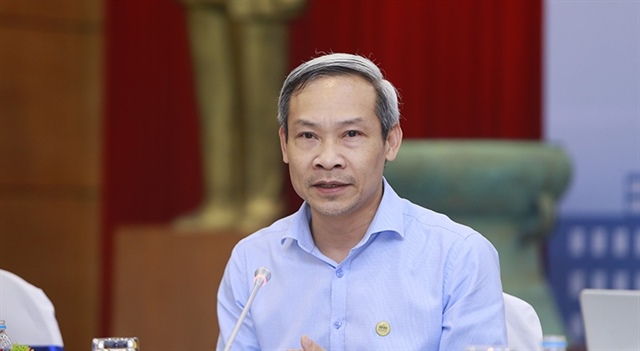Economic expert shares view on 8 per cent GDP target
Economic expert shares view on 8 per cent GDP target
Phan Duc Hieu, senior expert and member of the National Assembly Economic Committee, examines ways to achieve a GDP growth target of 8 per cent or more this year, as set by the government, and envisions the possible obstacles ahead.

Phan Duc Hieu |
How do you feel about the recent National Assembly (NA) discussion on the socioeconomic development plan for 2025 and the ambitious targets that have been set?
It demonstrates the government’s strong commitment to reaching or exceeding 8 per cent GDP growth this year, while also reflecting its determination to focus resources on materialising the target, meaning that more impactful measures must be introduced.
The previous measures set by the NA and the government to realise 6.5-7 per cent GDP growth, striving to reach 7.5 per cent growth, remain unchanged.
However, with the new growth target expanded by a further 1 per cent, the government must present a series of additional measures that need to be specific and clear.
A policy package for growth stimulation would be a smart move, following a principle of ensuring swift enforcement, without incurring any inflationary pressures.
What priority should be given to policies that may stimulate growth?
First, raise income and savings for people, from there encourage consumption in the community. It may be necessary to speed up the revision of the Law on Personal Income Tax, perhaps reducing tax burdens for each dependent, helping people to save more.
Second, review tax policies with the aim of supporting businesses. So long as they're not absolutely necessary, any proposals to increase taxes or business-related fees should be avoided for now. This is a critical factor in improving business competitiveness. If tax laws must still be amended, long-term goals should be set, with the application deadline postponed by another several years.
In addition, policies related to fees, charges, and exemptions should be reviewed for extension or new measures introduced. For example, policies on reducing land use fees should be extended, and possibly reconsidered for higher reductions as land costs increase.
Third, it is necessary to review and amend regulations that increase costs for businesses. For instance, the regulation requiring a deposit when importing scrap paper for production. Businesses report that a 20 per cent deposit is currently required for every shipment, which is a significant amount for companies in need of funds for other aspects of their operation, especially since there are rarely any violations.
Can't the focus be shifted to be on risk management, rather than applying it rigidly to every shipment and every business?
For businesses with a long record of compliance, why not reduce or waive the deposit for them? Or uniformly reducing the deposit for all businesses. Doing so would release more capital for production and improve efficiency.
Similarly, procedures for tax refunds should continue to be improved to avoid delays.
What are the main challenges in policy implementation for institutional reforms in Vietnam, and how can they be addressed?
The challenge lies in the possible delays in policy implementation and the effectiveness of executing the solutions that have been proposed.
Since 2024, institutional reforms have made significant progress, reflected in the laws passed by the NA carrying various amendments and resolutions that have resolved several legal difficulties and accelerated the investment implementation of numerous ventures. However, challenges still persist.
I believe we need to find every possible way to minimise those delays, create better opportunities for business faster than before. Localities have been empowered to make decisions, take action, and take responsibility, bringing policies into being. Now, they must swiftly turn policies into concrete actions and get to work immediately.
The difference this year is that specific growth targets have been set for each locality, industry, and sector instead of a general target. As a result, the government, localities, and ministries clearly see their responsibilities and show determination.



























